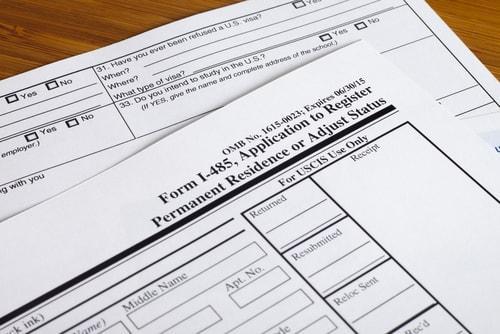Recent Blog Posts
Post-Divorce Decree Modifications
Posted on October 05, 2017 in Post-Judgment Modification & Enforcement
 Generally speaking, when a divorce decree is final, it can no longer be modified. However, when a significant change occurs in one of the parties’ lives, a decree can be adapted to fit that new reality. Protocol must be followed, but with help, a decree can be changed to suit life as it changes.
Generally speaking, when a divorce decree is final, it can no longer be modified. However, when a significant change occurs in one of the parties’ lives, a decree can be adapted to fit that new reality. Protocol must be followed, but with help, a decree can be changed to suit life as it changes.
When Is Modification Appropriate?
It is sometimes difficult to determine when a life change has been dramatic enough to mandate modification of a divorce decree. The unspoken rule is that whenever the amount of people, time and/or money changes in your life, it is grounds for change. Some examples of these situations would:
- One party to the divorce becoming disabled permanently or for the foreseeable future;
- One party receiving a promotion/higher salary at work;
Continue Reading ››
What Is a Guardian ad Litem?
Posted on October 04, 2017 in Child Custody
 Divorce does not only affect you and your spouse. It can affect your extended family, and most certainly, your children. Sometimes, especially if your divorce is drawn out and complicated, it can be useful to have a person who is specifically invested in protecting your children’s interests, as they can occasionally get lost in the shuffle. This is the role of a guardian ad litem (GAL).
Divorce does not only affect you and your spouse. It can affect your extended family, and most certainly, your children. Sometimes, especially if your divorce is drawn out and complicated, it can be useful to have a person who is specifically invested in protecting your children’s interests, as they can occasionally get lost in the shuffle. This is the role of a guardian ad litem (GAL).
GALs in Illinois
A GAL’s role differs in different states. In Illinois, they are essentially advocates for children who the subject of parental responsibilities proceedings. In most cases, such proceedings are part of the divorce process. However, GALs do not concern themselves with questions of property or fault. Their aim is entirely to obtain enough information to make a recommendation on what outcome would be in the child or children’s best interests, though they may not advise the child directly. They do this through interviews with the children and parents and accessing records which might shed light on each parent’s financial, physical, and mental situation.
Continue Reading ››
Changing Child Support: When Can it be Done?
Posted on September 28, 2017 in Child Support
 Child support is part of virtually every divorce agreement when there are minor children in the picture. Generally, an amount is calculated by the court while the divorce is being hammered out, but sometimes, spouses reach an agreement themselves. Either way, the amount and frequency of child support is not often changeable. When it is, you must fulfill all the requirements for the order to be accepted by the court.
Child support is part of virtually every divorce agreement when there are minor children in the picture. Generally, an amount is calculated by the court while the divorce is being hammered out, but sometimes, spouses reach an agreement themselves. Either way, the amount and frequency of child support is not often changeable. When it is, you must fulfill all the requirements for the order to be accepted by the court.
“Significant Changes”
Illinois law dictates that support modifications can only be made once every three years or when a “significant change” has occurred within the family. There is some debate about what this specifically means. Generally speaking, a support order will not be modified by a court unless a parent can show a significant change or that at least a 20 percent differential will happen between the current amount of support and the amount that would result from a modification. However, the reason for that differential may vary.
Continue Reading ››
Fixing a Mistake: Getting an Annulment in Illinois
Posted on September 25, 2017 in Annulment
 Usually, when two people marry and decide that it was a mistake, they simply file for divorce. However, in some situations, they opt instead for an annulment. There are many reasons that people wish to obtain an annulment, but in truth, the requirements are very strict. Divorce is easier to get, but sometimes, an annulment may suit your purposes better. It is a good idea to understand the difference between the two.
Usually, when two people marry and decide that it was a mistake, they simply file for divorce. However, in some situations, they opt instead for an annulment. There are many reasons that people wish to obtain an annulment, but in truth, the requirements are very strict. Divorce is easier to get, but sometimes, an annulment may suit your purposes better. It is a good idea to understand the difference between the two.
Requirements for an Annulment
There are only four valid reasons to obtain an annulment (otherwise known as a declaration of invalidity of marriage) in Illinois, as opposed to a divorce. They are:
- One of the parties to the marriage was underage and did not obtain a parent’s consent;
- One of the parties is unable to engage in marital relations;
- One of the parties could not consent to the marriage, either due to being under the influence of a substance, mentally ill, or because their consent was obtained due to force or duress; or
Continue Reading ››
Divorce and Immigration Status: What Changes?
Posted on September 21, 2017 in Divorce
 Today’s world is a globally connected one. More and more people are marrying citizens of other countries and moving to other countries to be with their spouses. If you marry a foreign national and want to live with them in the United States, your spouse will likely need to become a Lawful Permanent Resident (LPR, or ‘green card holder’), and may one day become a citizen. However, if your marriage does not work out, your spouse may experience significant immigration problems.
Today’s world is a globally connected one. More and more people are marrying citizens of other countries and moving to other countries to be with their spouses. If you marry a foreign national and want to live with them in the United States, your spouse will likely need to become a Lawful Permanent Resident (LPR, or ‘green card holder’), and may one day become a citizen. However, if your marriage does not work out, your spouse may experience significant immigration problems.
Before Approval
If you and your foreign-born spouse intend to make your home in the United States, there is a specific procedure you must follow in order for your husband or wife to obtain legal status in this country. A U.S. citizen spouse must submit an application called an I-130, Petition for Alien Relative, in which they promise to sponsor their foreign spouse. This means vouching for his or her character and also promising that he or she will not require public assistance benefits or become homeless.
Continue Reading ››
When Divorce and Bankruptcy Meet
Posted on September 19, 2017 in Divorce
 Sometimes, things simply go bad. It is thankfully rare, but it is not unheard of that someone would have to file for bankruptcy and divorce at the same time. If this happens to you, you may question whether or not to file for both at the same time, or if not, which matter to pursue first. Illinois divorce laws and bankruptcy laws make the answer to that question fairly clear.
Sometimes, things simply go bad. It is thankfully rare, but it is not unheard of that someone would have to file for bankruptcy and divorce at the same time. If this happens to you, you may question whether or not to file for both at the same time, or if not, which matter to pursue first. Illinois divorce laws and bankruptcy laws make the answer to that question fairly clear.
Which to File First?
Illinois divorce law and bankruptcy law essentially make filing both petitions at the same time impossible. When you file for bankruptcy, you generally hand over your assets to the care of a bankruptcy trustee for sale or disposition as necessary to pay off your creditors. Once you have commenced a bankruptcy filing, you may not make unilateral decisions about your property. Technically it is no longer yours. Thus, there is nothing for a family court judge to divide.
Continue Reading ››
How to Know If Divorce Is Right for You
Posted on September 15, 2017 in Divorce
 Nobody get married with the intention of someday ending the marriage. Many people go into a marriage with only the best intentions but then life gets in the way. Circumstances change, people grow and change, children are born, careers end and new ones begin. For most people considering divorce, the marriage did not turn out the way they had hoped it would. But, how do you know when a marriage is truly over and it is time to call it quits? Unfortunately, there is no perfect solution to this problem. Every marriage is different. However, there are some questions you can ask yourself to help you figure out what the best course of action is for you in your unique circumstances.
Nobody get married with the intention of someday ending the marriage. Many people go into a marriage with only the best intentions but then life gets in the way. Circumstances change, people grow and change, children are born, careers end and new ones begin. For most people considering divorce, the marriage did not turn out the way they had hoped it would. But, how do you know when a marriage is truly over and it is time to call it quits? Unfortunately, there is no perfect solution to this problem. Every marriage is different. However, there are some questions you can ask yourself to help you figure out what the best course of action is for you in your unique circumstances.
When you are considering ending your marriage, ask yourself the following questions:
- What are the problems in the relationship and are they able to be fixed? Before you can have any hope of repairing a broken marriage, first you must identify what the issues are. Are you and your spouse in agreement about what is causing trouble in the relationship? Have you considered what your role in those problems are? Once the issues have been identified, consider if there is anything that can be done to resolve them.
Continue Reading ››
Challenges Unique to Gray Divorce
Posted on September 13, 2017 in Divorce
 It used to be that once a marriage had passed a certain benchmark of years, it was considered basically safe from the possibility of divorce. However, in this day and age, numerous social and anthropological factors have combined to make divorce much more of a reality for those over 50. While the reality of divorce itself is much more common nowadays, it is not necessarily the same process for seniors as it is for those in their 20s and 30s. If you are planning to divorce later in life, especially after retirement, there are considerations you must take into account.
It used to be that once a marriage had passed a certain benchmark of years, it was considered basically safe from the possibility of divorce. However, in this day and age, numerous social and anthropological factors have combined to make divorce much more of a reality for those over 50. While the reality of divorce itself is much more common nowadays, it is not necessarily the same process for seniors as it is for those in their 20s and 30s. If you are planning to divorce later in life, especially after retirement, there are considerations you must take into account.
Social Security Questions
It is reasonable for one to assume that Social Security benefits would be divisible, as is most other property, in a divorce. This is not actually the case; courts may not divide Social Security income or benefits, because they are considered non-marital property. However, the Social Security Administration does permit spouses (or ex-spouses, in some cases) to qualify for direct benefits based on their spouse’s work history. The criteria for receiving your own benefits based on your ex-spouse’s work history are:
Continue Reading ››
Divorce and Disabled Children
Posted on September 08, 2017 in Child Custody
 Too often, disabled children, whether they are adults or minors, become points of contention during a divorce. Raising a child with a disability can be quite expensive in in the United States, and while studies show that the rate of divorce for parents of a disabled child is very high, you should never make your child feel as though he or she caused your breakup. It is also important to ensure that your child is cared for regardless of circumstances.
Too often, disabled children, whether they are adults or minors, become points of contention during a divorce. Raising a child with a disability can be quite expensive in in the United States, and while studies show that the rate of divorce for parents of a disabled child is very high, you should never make your child feel as though he or she caused your breakup. It is also important to ensure that your child is cared for regardless of circumstances.
Financial Issues
One of the first priorities that you should have as a parent in this situation is to ensure that your child does not lose the benefits for which he or she has previously qualified. Supplemental Security Income (SSI) and Medicaid are affected by the amount that the person (or their caregivers) makes per month, so if, for example, you are awarded spousal support in your divorce decree that pushes you into a new tax bracket, your disabled child could become ineligible for all or part of his or her SSI. This can be avoided if your divorce agreement is written carefully. Generally, in Illinois, this means establishing what is referred to as a Special Needs Trust, into which the paying parent pays their child support payments. The reason for such stringent rules is because in the eyes of the Social Security Administration (SSA), child support belongs to the child not to the custodial parent.
Continue Reading ››
Protecting the Rights of Non-Marital Children
Posted on September 06, 2017 in Paternity
 The most recent data available from the Centers for Disease Control and Prevention (CDC) show that approximately 40 percent of all births in the United States in a given year are to unmarried women. While this was formerly a cause for shame or concern, in this day and age, there is often much less stigma, but children out of wedlock do sometimes require additional considerations to ensure their rights are protected. If you are the parent of a child born outside of marriage, it is important to be aware that there may be extra steps you need to take to protect your child legally.
The most recent data available from the Centers for Disease Control and Prevention (CDC) show that approximately 40 percent of all births in the United States in a given year are to unmarried women. While this was formerly a cause for shame or concern, in this day and age, there is often much less stigma, but children out of wedlock do sometimes require additional considerations to ensure their rights are protected. If you are the parent of a child born outside of marriage, it is important to be aware that there may be extra steps you need to take to protect your child legally.
Paternity and Custody
Many of the major disputes over the rights of children occur when custody or parental responsibilities are in question. With marital children, custody arrangements are fairly straightforward, given that Illinois law grants visitation (parenting time) to both parents unless it would endanger the physical, moral, or emotional health of the child. With non-marital children, there are other considerations—namely, the issue of paternity.
Continue Reading ››







 Generally speaking, when a divorce decree is final, it can no longer be modified. However, when a significant change occurs in one of the parties’ lives, a decree can be adapted to fit that new reality. Protocol must be followed, but with help, a
Generally speaking, when a divorce decree is final, it can no longer be modified. However, when a significant change occurs in one of the parties’ lives, a decree can be adapted to fit that new reality. Protocol must be followed, but with help, a  Divorce does not only affect you and your spouse. It can affect your extended family, and most certainly, your children. Sometimes, especially if your divorce is drawn out and complicated, it can be useful to have a person who is specifically invested in protecting your children’s interests, as they can occasionally get lost in the shuffle. This is the role of a
Divorce does not only affect you and your spouse. It can affect your extended family, and most certainly, your children. Sometimes, especially if your divorce is drawn out and complicated, it can be useful to have a person who is specifically invested in protecting your children’s interests, as they can occasionally get lost in the shuffle. This is the role of a  Child support is part of virtually every divorce agreement when there are minor children in the picture. Generally, an amount is calculated by the court while the divorce is being hammered out, but sometimes, spouses reach an agreement themselves. Either way, the amount and frequency of
Child support is part of virtually every divorce agreement when there are minor children in the picture. Generally, an amount is calculated by the court while the divorce is being hammered out, but sometimes, spouses reach an agreement themselves. Either way, the amount and frequency of  Usually, when two people marry and decide that it was a mistake, they simply file for
Usually, when two people marry and decide that it was a mistake, they simply file for  Today’s world is a globally connected one. More and more people are marrying citizens of other countries and moving to other countries to be with their spouses. If you marry a foreign national and want to live with them in the United States, your spouse will likely need to become a Lawful Permanent Resident (LPR, or ‘green card holder’), and may one day become a citizen. However, if your marriage
Today’s world is a globally connected one. More and more people are marrying citizens of other countries and moving to other countries to be with their spouses. If you marry a foreign national and want to live with them in the United States, your spouse will likely need to become a Lawful Permanent Resident (LPR, or ‘green card holder’), and may one day become a citizen. However, if your marriage  Sometimes, things simply go bad. It is thankfully rare, but it is not unheard of that someone would have to file for
Sometimes, things simply go bad. It is thankfully rare, but it is not unheard of that someone would have to file for  Nobody get married with the intention of someday ending the marriage. Many people go into a marriage with only the best intentions but then life gets in the way. Circumstances change, people grow and change, children are born, careers end and new ones begin. For most people considering
Nobody get married with the intention of someday ending the marriage. Many people go into a marriage with only the best intentions but then life gets in the way. Circumstances change, people grow and change, children are born, careers end and new ones begin. For most people considering  It used to be that once a marriage had passed a certain benchmark of years, it was considered basically safe from the possibility of
It used to be that once a marriage had passed a certain benchmark of years, it was considered basically safe from the possibility of  Too often, disabled children, whether they are adults or minors, become points of contention during a
Too often, disabled children, whether they are adults or minors, become points of contention during a  The most recent data available from the Centers for Disease Control and Prevention (CDC) show that approximately 40 percent of all births in the United States in a given year are to unmarried women. While this was formerly a cause for shame or concern, in this day and age, there is often much less stigma, but children out of wedlock do sometimes require additional considerations to ensure their
The most recent data available from the Centers for Disease Control and Prevention (CDC) show that approximately 40 percent of all births in the United States in a given year are to unmarried women. While this was formerly a cause for shame or concern, in this day and age, there is often much less stigma, but children out of wedlock do sometimes require additional considerations to ensure their 
